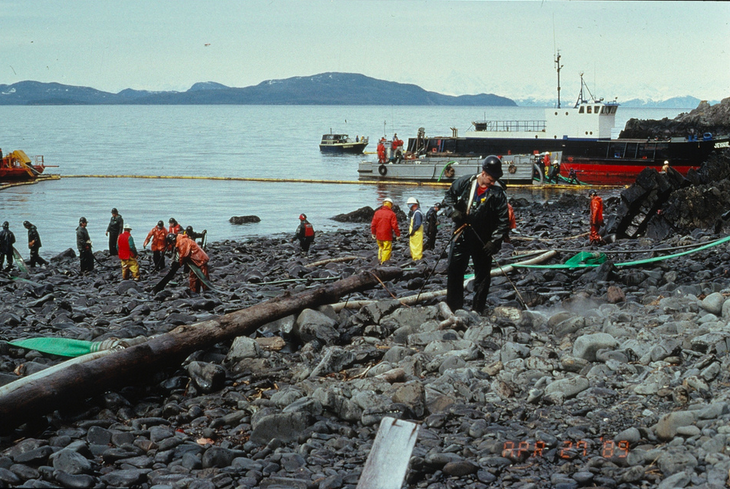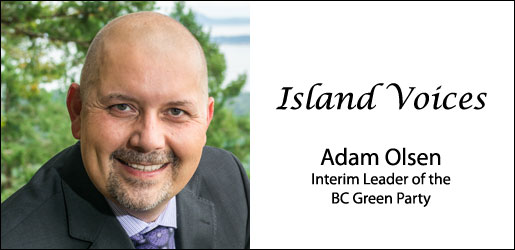Oil trafficking: Playing Russian roulette with BC’s environment and economy
Archive ∙ Back to Island Voices
March 2014

Days before the 25th anniversary of the Exxon Valdez oil spill, the west coast’s signature oil spill, a barge carrying “heavy oil” collided with another ship spilling approximately nearly 650,000 litres into the water around Galveston and Texas City, south of Houston, Texas.
Then, on Monday we were reminded of the 1989 disaster that dumped approximately 40 million litres of oil into the Alaskan waters – the oil is still found on the shorelines of the north coast.
This latest oil spill is a tip of the hat to the bigger spills of the past, and it foreshadows the spills of the future. Just change the location from Galveston to Kitimat, BC.
Texas state official Jerry Patterson is quoted in an Associated Press story as saying, “The best-case scenario is for most of the slick to remain in the Gulf for at least several days and congeal into small tar balls that wash up further south on the Texas coast, where they could be picked up and removed.”
Would British Columbians accept this as the kind of ‘world-leading’ response in the Douglas Channel?
The spill shut down the shipping channel, stifling the important economic activity of the port. There is not just the looming environmental disaster but also the tremendous economic pressure that is building under the Texas oil recovery teams. What if this spill was in Vancouver – Canada’s busiest port? What would a closure of the Port of Vancouver do to our provincial and national economy? Would we sacrifice a “world-leading oil response” to allow commerce to continue?
We have seen examples of the dangers of trafficking oil, especially heavy oil and diluted bitumen. Unfortunately, the federal and provincial governments are willing to play Russian roulette with the environment and economy. It is time to stop gambling with our livelihood and well-being. We must have the courage to act now and reduce our addiction to fossil fuels.
As Robert Kennedy Jr. said at the GLOBE 2014 conference in Vancouver, “good environmental policy is always good economic policy.”
Archive ∙ Back to Island Voices


